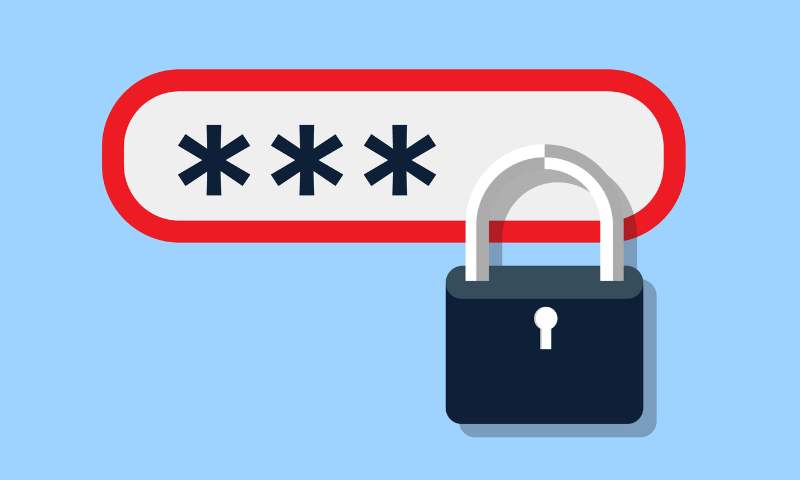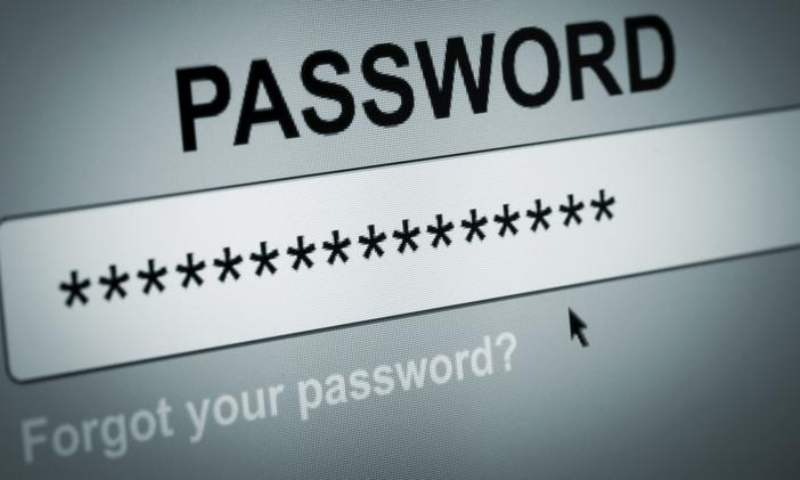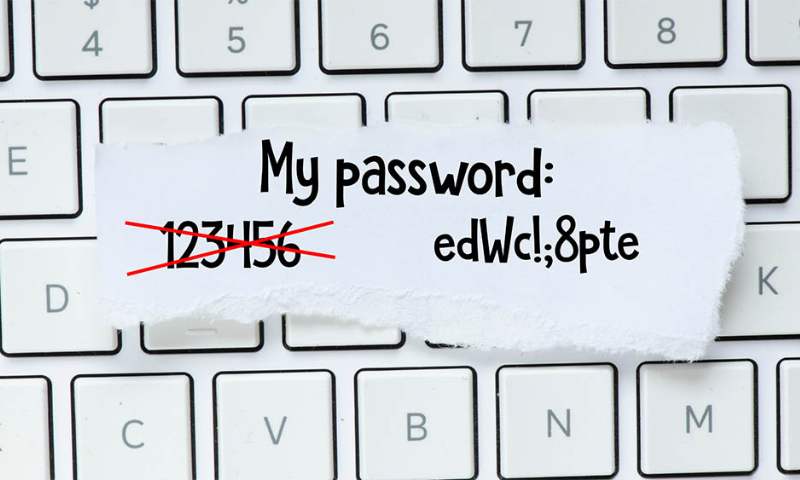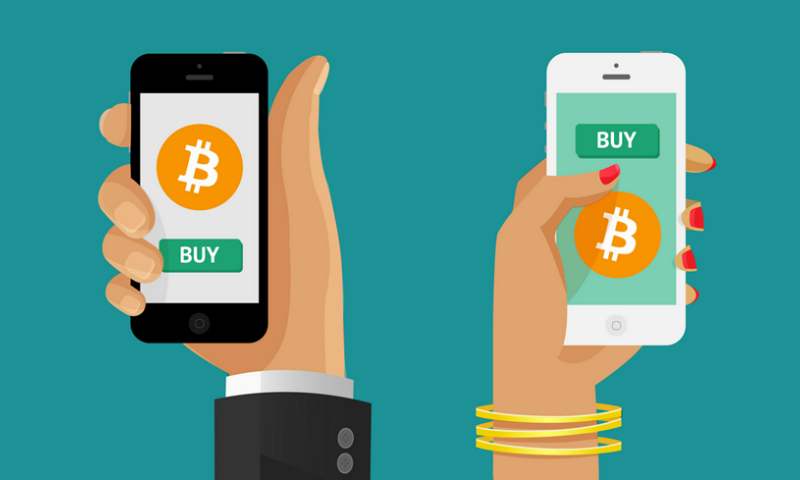Setting up strong passwords and security measures for your crypto wallet is not a matter to take lightly—it’s your financial shield in the digital realm. Think of your crypto wallet as a fortress; your password is the lock on the front gate. But as cyber outlaws get smarter, so must our defenses. We must evolve from the simple “1234” to complex keys that baffle the best of hackers. This guide walks you through crafting secure passwords that are hacker-proof, ensuring your digital treasures stay safe. By layering up with two-factor authentication and using unique passwords for every site, you can stay one step ahead. I’ll show you how.
Understanding the Foundations of Crypto Wallet Security
The Evolution of Strong Password Requirements for Cryptocurrency
Getting a strong password is like building a safe for your gold. In the old days, we just needed a good lock. Now, for crypto, we need walls that can’t be broken. That’s how password needs have grown for keeping digital money safe.
How to Create Secure Crypto Passwords that Thwart Hackers
What makes a password strong? It boils down to length, mix of characters, and being unique. Let’s dive in and unpack these must-haves.
Length is key: Your password should be long. Aim for at least 12 characters. Think of your password like a fence around your home. The longer it is, the harder it is to climb.
Mix it up: Use letters, numbers, and symbols. This mix is like having different locks on one door. It forces a thief to pick not one, but many locks.
Be a one-of-a-kind: Never reuse passwords. One key should open one lock, not many. The same goes for passwords with your precious crypto. If a bad guy gets your password, you don’t want them to access everything you own.
Now, what are some real crypto account security tips to make your passwords uncrackable?
Here are the basics:
- Start with a sentence or phrase you won’t forget.
- Swap out letters with symbols and numbers.
- Add in a mix of upper and lowercase.
You may also enable two-factor authentication for extra safety. It’s like having a guard check who’s coming in, not just trusting the lock on the door.
And remember, don’t share your password. Keep it safe like you do with your home keys.
Protecting your digital assets is serious stuff. Use a password manager that helps you remember and creates tough passwords for you. This is your digital safe. It needs to be iron-clad.
And let’s not forget about the cold storage solutions. If your crypto is not in use, tuck it away. Cold storage is like a vault. It’s offline, so hackers can’t reach it.
But here’s something super important: Understand your private key. It’s like the master key to your vault. You should encrypt your backups too. This way, even if someone finds your key, they can’t use it.
Avoid simple mistakes. Avoid easy passwords like “12345.” Don’t click on weird links, either. These can lead to phishing attacks. They trick you and steal your keys.
In the end, creating secure passwords is like guarding treasure. Each step keeps it safer. With solid crypto wallet security best practices, you build walls no thief can climb. Choose well, and your digital gold stays locked away, just as it should.
Advanced Protection Practices for Your Digital Assets
The Role of Two-Factor and Multi-Factor Authentication in Crypto Security
Let’s get real about keeping your crypto safe. You’ve heard of two-factor authentication, right? Maybe you’ve seen it when logging in somewhere with a code sent to your phone. It’s like a guard that checks you twice and says, “Yep, it’s really you.” So, with your crypto wallet, using two-factor authentication, or even better, multi-factor authentication, adds extra checks. This means if someone gets your password, they still can’t get in. They need your phone too. And let’s be honest, you don’t want anyone sneaking into your digital money bag.
Why bother with more than one check? Simple: hackers. With just a password, they might break in. But add a code from your phone and maybe even a fingerprint, and you’ve just built a security wall they can’t climb. It’s like a combo lock, but the second lock changes every time. They’ll never guess it.
The Importance of Using Unique Passwords and a Reliable Password Manager
Ever use the same key for your house, car, and office? Bad move. Same goes for passwords. If you use one password everywhere, it’s easy for bad guys to unlock all your stuff with one guess. Now let’s think about your crypto wallet. It’s not just any lock. It needs a strong, unique password. Here’s a pro tip: use a password manager. It remembers all your different, complex passwords so you don’t have to.
Why can’t I just use one good password everywhere? Imagine you have one key for everything. If you lose it, you’re stuck. Now think about passwords. Use the same one, and if someone finds it, they can get into everything you have online. But with a password manager, you’ve got a bunch of strong keys, all kept safe in a virtual key box.
Let’s break it down. A strong password is long and random, like a crazy mix of letters, numbers, and symbols. It’s like making a puzzle that’s super hard to solve. A password manager can make these for you and keep them locked up tight. This way, even if someone figures out one of your passwords, they can’t get to your other stuff. Your crypto stays safe, and you sleep easy at night.
Got it? Awesome. Now go set up that two-factor authentication, make those passwords unique, and get yourself a password manager. Protect that digital gold!
Proactive Measures to Keep Your Crypto Wallet Impenetrable
Recognizing and Avoiding Common Password Mistakes and Phishing Attacks
When we chat about crypto, we must talk about the keys to its lock. You know, passwords — what keeps hackers out but lets you in. Now, hear me out: using “password123” won’t cut it. Nor will “123456”, or your pet’s name. Hackers love those! Instead, strong passwords are a must. Picture a tough guard by your crypto gate; that’s your password. So, mix it up with numbers, symbols, and both upper and lower case. It’s like a secret code, one that only you know.
Now, let’s dodge those sneaky phishing attacks. No, not the “going to the lake” type of fishing. I mean the bad kind, where tricksters try to steal your crypto by being sneaky. They’ll send emails or messages that look real but aren’t. These fakes want your password, so watch out! Don’t click on strange links or give out your password. Even if it seems like it’s from a pal, double-check first. It’s better to be a bit slow and safe than fast and sorry.
Embracing Hardware Wallets and their Security Features for Additional Safeguards
Got a minute? Let’s talk about hardware wallets. These are like super vaults for your crypto coins. They’re physical devices, kinda like USB drives, but for storing your digital cash. Think of them as safes that you can carry around. What’s cool is, even if your computer gets into trouble, your crypto stays safe. Locked up tight in that hardware wallet, like a treasure chest!
They’re not just locks though, they’re like having a personal bodyguard too. Most hardware wallets need a PIN, and you can even set up a recovery phrase. That’s a secret sentence that helps you get back in if things go wonky. And you know what’s even better? Some have screens, so you can double-check everything’s right before you OK it. Remember, though, keep that recovery phrase hidden. Maybe tell it to your cat, but that’s about it!
And like any good secret agent, mix it up now and then. Changing your PIN once in a while keeps things fresh. Don’t let bad guys catch on. Let’s all turn into password ninjas and keep our crypto gold safe and sound. And if you’re ever unsure about a message, ask a buddy or ignore it. Better safe than sorry!
Maintaining Ongoing Security in an Evolving Threat Landscape
Periodic Updates and Best Practices for Password Security in Crypto
Every few months, change your wallet password to a new, strong one. Do this often. It stops old passwords from getting into the wrong hands. Use a mix of letters, numbers, and symbols. Avoid using easy guesses like your name or birthday. Each character you add makes your password tougher to crack.
A good rule is to make your password at least 12 characters long. That way, it’s hard for hackers to guess. Also, never use the same password for different accounts. If a hacker gets one password, they’ll try it on other sites.
Think of passwords as keys to your crypto treasure. You wouldn’t use a weak lock on a treasure chest, right? The same goes for digital riches. That’s why strong passwords are a must. For added safety, write down your passwords and keep them in a secret place at home.
What’s more, use a password manager. It’s a tool that makes and stores hard passwords for you. It keeps them safe so you don’t have to remember every single one. This tool helps you avoid writing passwords down where others could find them.
Staying Ahead of Cyber Threats with the Latest Cryptocurrency Security Protocols
Hackers always find new ways to steal crypto. But, we can outsmart them. To keep your wallet safe, use the newest security tricks. Like two-factor authentication (2FA). This asks for a code from your phone when you log in, along with the password. It’s a double check that helps stop hackers.
Another cool thing to use is multi-factor authentication (MFA). This means you might use a code from your phone and your fingerprint to get into your wallet. It’s like having a secret handshake. Only you know it, so it’s very safe.
Don’t click on weird links or emails. These are often traps, called phishing attacks. They try to trick you into giving away your password. Always check if an email is real before you click anything or share info.
Remember to only use networks you trust when you check your crypto wallet. Public Wi-Fi is not safe for this. It’s easy for hackers to watch what you’re doing on these networks. If they see your wallet info, it’s like leaving your wallet open in a crowd.
For the best safety, think about getting a hardware wallet. It’s like a safe for your crypto. Even if your computer gets hacked, your crypto stays locked away. Hardware wallets are hard to break into and keep your coins safe offline.
Finally, encrypt your wallet backups. That means you put a secret code on your backup files. So, if someone finds it, they can’t open it without the secret code. This is key for keeping your backups safe from thieves.
Remember these tips to keep your crypto safe from bad guys. With some smart moves, you can be your own superhero, protecting your digital coins.
In this blog, we dug deep into keeping crypto wallets safe. We started by looking at how strong passwords have evolved. I shared my best tips for creating passwords that hackers can’t crack. Then we talked about adding layers of protection like two-factor and multi-factor authentication. I stressed the importance of unique passwords and using a good password manager.
We also covered proactive steps to shield your wallet from cyber risks. I explained common mistakes folks make and how to spot phishing. We explored hardware wallets that provide extra security. Finally, I reminded you to regularly update your passwords and stay current with security protocols.
My final take? Protecting your crypto means being smart and staying alert. Use strong passwords, keep them unique, and back them up with solid security practices. Follow this advice, and you’ll stand a strong chance against most threats. Stay safe out there!
Q&A :
How can I create a strong password for my crypto wallet?
Creating a strong password for your crypto wallet is essential for protecting your digital currency from unauthorized access. Here are some tips to ensure your password is strong:
- Use a combination of letters (both uppercase and lowercase), numbers, and symbols.
- Make your password at least 12 characters long, but the longer, the better.
- Avoid common words and phrases, and don’t use personal information that can be guessed or found online.
- Consider using a passphrase—a sequence of words that create a pattern known only to you.
- Utilize a password generator for a random, high-security password.
- Regularly update your password but avoid using similar passwords from the past.
Always remember to store your password securely and never share it with others.
What are the best security measures to protect my crypto wallet?
Protecting your crypto wallet requires a mix of good practices and technology. Here are several recommended security measures:
- Enable two-factor authentication (2FA) for an added layer of security beyond your strong password.
- Employ hardware wallets for storing significant amounts of cryptocurrency offline, rendering them impervious to online hacking attempts.
- Keep your private keys offline and never disclose them.
- Use reputable wallets with a good track record for security and customer support.
- Regularly back up your wallet to recover your funds in case of device failure, theft, or loss.
- Keep your wallet software up to date to benefit from the latest security enhancements.
By combining these practices, you can significantly increase the security of your crypto wallet.
What should I avoid when setting up my crypto wallet security?
When securing your crypto wallet, steer clear of several potential pitfalls:
- Do not reuse passwords or use simple passwords that are easy to guess or crack.
- Avoid storing your private keys or seed phrases in easily accessible online locations, such as your email or cloud storage.
- Refrain from using public Wi-Fi networks when accessing your crypto wallet, as they can be insecure.
- Don’t share your security credentials, like your private keys or recovery phrases, with anyone.
- Stay vigilant and avoid phishing attempts by double-checking website URLs and not clicking on suspicious links.
Remember, the security of your crypto wallet is paramount, and taking shortcuts can put your funds at serious risk.
How often should I change my crypto wallet password?
Ideally, you should change your crypto wallet password every 3 to 6 months or whenever you suspect that your password might have been compromised. However, if you’re using a hardware wallet or a wallet that doesn’t regularly connect to the internet, the need to change your password frequently could be reduced. Regardless of the frequency, ensure that every new password is unique and follows the guidelines for creating a strong password.
Is it safe to use a password manager for my crypto wallet credentials?
Using a password manager can be a safe way to store and manage your crypto wallet credentials, as long as you choose a reputable and secure password manager. Password managers can generate complex, unique passwords for you and store them encrypted. Ensure that your password manager is protected with a strong master password and consider using one with two-factor authentication for additional security. Always research and select a trusted password manager that has a strong track record for security and reliability.






